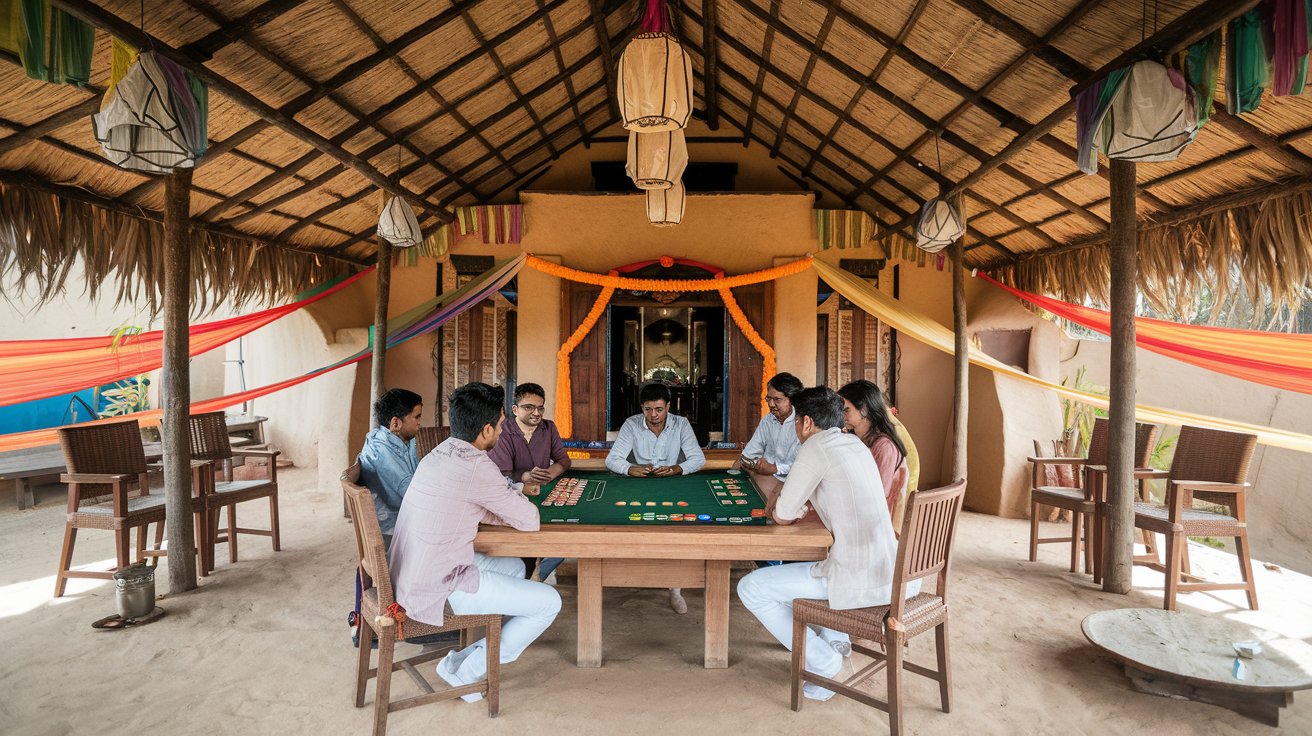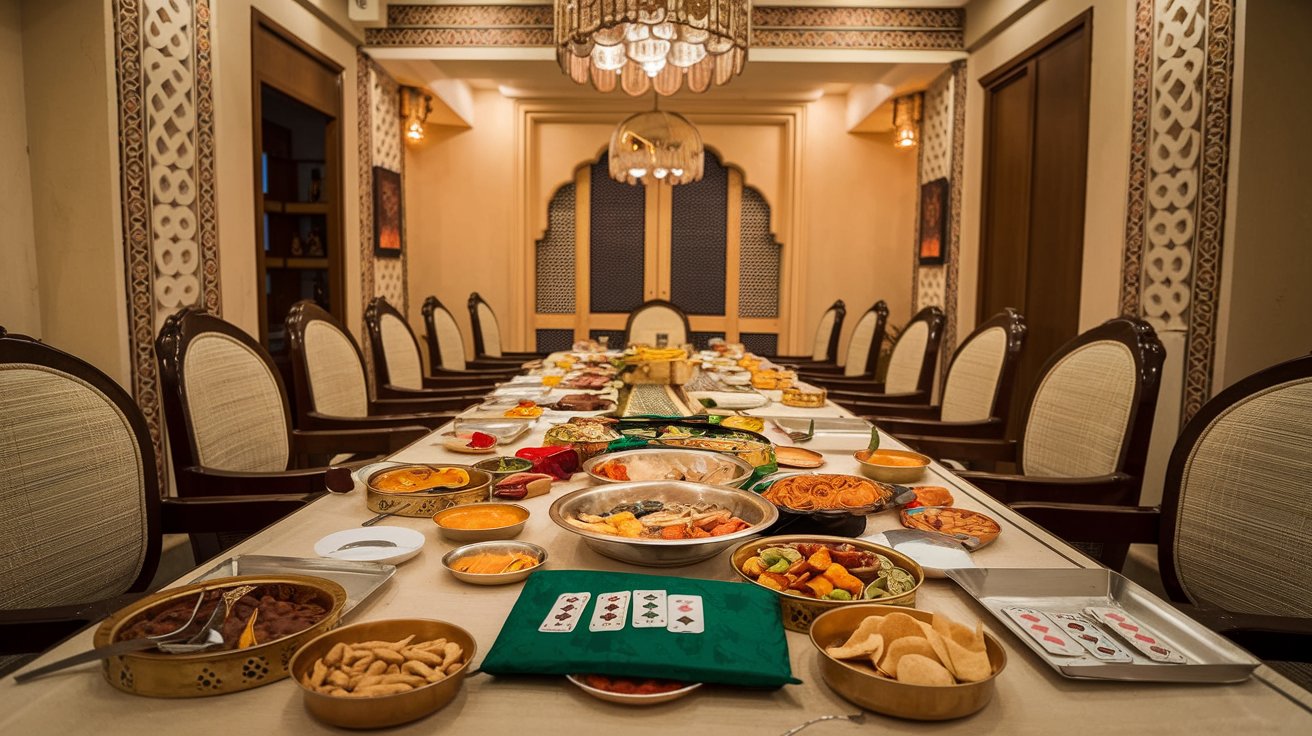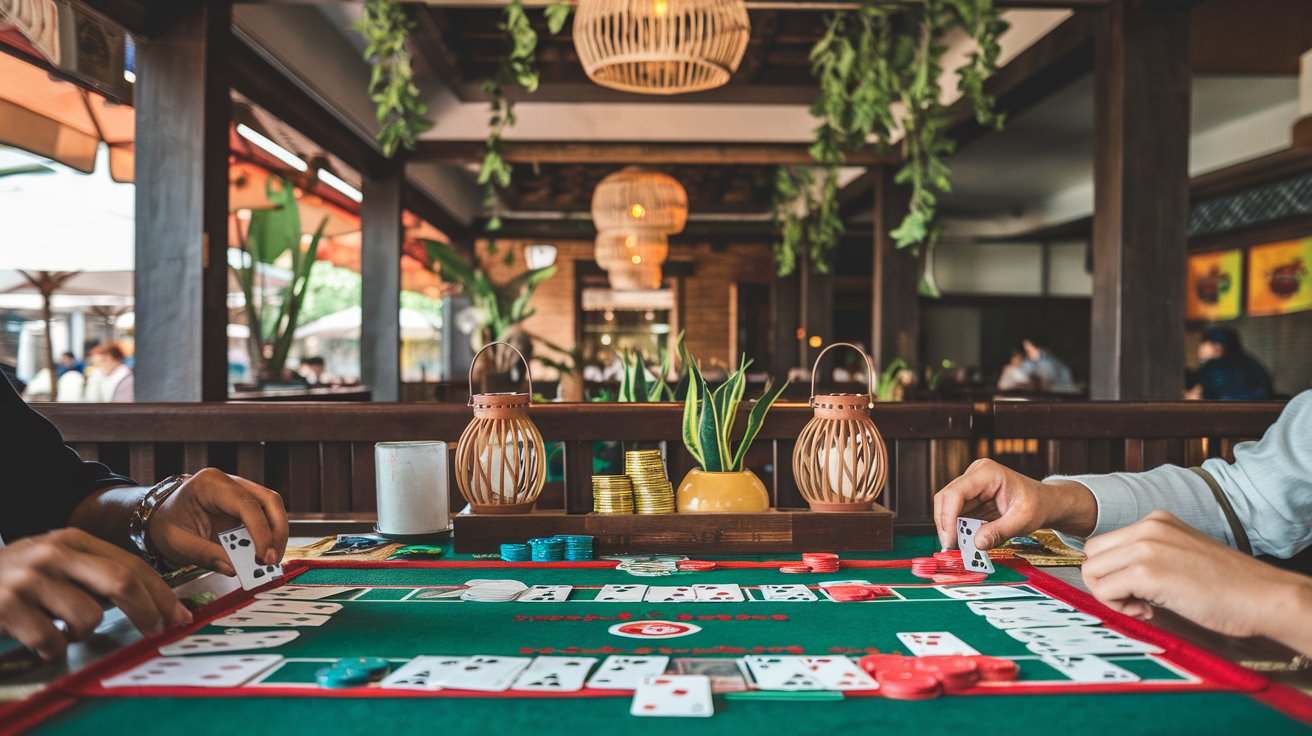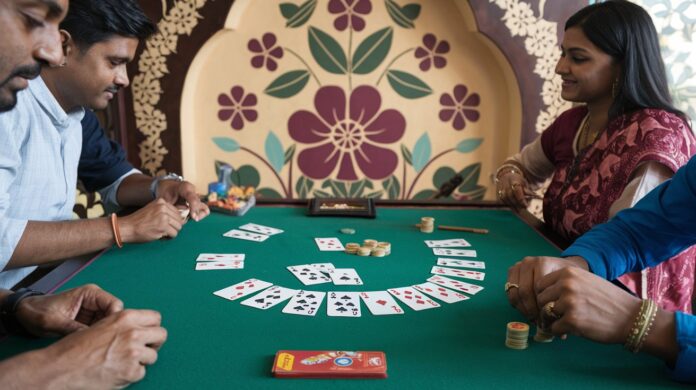When you think of Indian hospitality, what comes to mind? Perhaps it’s the warm smiles, the endless cups of chai, or the generous spreads of aromatic food that greet you at every doorstep. Indian culture thrives on connection—bringing people together through shared experiences, laughter, and traditions. Now, imagine adding a deck of cards to this vibrant scene. Enter rummy—a timeless card game that has woven itself into the fabric of Indian social life, becoming more than just a pastime. It’s a bridge that connects generations, strengthens bonds, and embodies the essence of Indian hospitality.
In this blog, we’ll explore how rummy and Indian hospitality intertwine to create a unique cultural experience. From family gatherings to festive celebrations, rummy isn’t just a game—it’s a celebration of togetherness. Let’s dive into the history, the rules, the stories, and the magic that make rummy a cornerstone of Indian social connection.
The Roots of Rummy in India: A Cultural Staple
Rummy’s origins may trace back to Western card games like Conquian or Poker, but its journey to India has transformed it into something distinctly desi. Introduced during the colonial era, rummy found a home in Indian households, evolving into a game that resonates with the country’s love for strategy, skill, and socializing. Today, it’s as much a part of Indian culture as Bollywood movies or Diwali sweets.
What makes rummy so special in India? It’s simple yet strategic, accessible yet challenging—a perfect fit for a nation that values both intellect and entertainment. Whether it’s a rainy afternoon in a Mumbai chawl or a festive night in a Punjab village, rummy brings people together in a way few games can. It’s no surprise that it has become a symbol of Indian hospitality, where guests are welcomed not just with food but with an invitation to join the table.
Why Rummy Fits Indian Hospitality Like a Glove
Indian hospitality is rooted in the idea of atithi devo bhava—the guest is god. It’s about making people feel included, valued, and entertained. Rummy aligns perfectly with this ethos. The game is easy to learn, so even newcomers can join in without feeling left out. At the same time, it offers enough depth to keep seasoned players engaged. Add a plate of pakoras and some Bollywood music in the background, and you’ve got the recipe for a quintessential Indian evening.
How Rummy Brings People Together

Picture this: It’s Diwali night. The house is adorned with diyas, the air smells of mithai, and relatives are gathered around a table, laughing over a heated rummy match. The kids are learning from their grandparents, the uncles are bluffing their way through, and the aunties are keeping score with hawk-like precision. This isn’t just a game—it’s a ritual of connection.
1. A Game for All Ages
One of rummy’s biggest strengths is its universal appeal. From teenagers to grandparents, everyone can play. In a country where multi-generational households are common, rummy acts as a great equalizer. It’s not uncommon to see a 10-year-old outsmarting their 70-year-old nani, much to the delight of the entire family.
2. Breaking the Ice with Guests
In India, hospitality often extends beyond family to friends, neighbors, and even strangers. When someone new walks into an Indian home, offering them a seat at the rummy table is a way to break the ice. The game becomes a conversation starter, a shared activity that turns acquaintances into friends.
3. Strengthening Bonds During Festivals
Festivals like Diwali, Holi, and Raksha Bandhan are peak rummy seasons in India. As families come together to celebrate, the card table becomes a focal point. It’s a chance to unwind, share stories, and revel in friendly competition. Winning a rummy game might earn you bragging rights, but losing often comes with good-natured teasing that only deepens the camaraderie.
The Rules of Rummy: A Quick Guide for Newbies

If you’re new to rummy or Indian hospitality, don’t worry—it’s easy to catch up. The classic Indian version of rummy, often called “13-card rummy,” is the most popular variant. Here’s a quick rundown of how it works:
- Players: 2 to 6 players, using one or two standard decks of 52 cards (plus jokers).
- Objective: Arrange your 13 cards into valid sets (three or four cards of the same rank) and sequences (three or more consecutive cards of the same suit).
- Gameplay: Players draw and discard cards each turn, aiming to “declare” by forming all their cards into sets and sequences.
- Winning: The first player to declare with a valid hand wins, while others tally points based on ungrouped cards.
The beauty of rummy lies in its balance of luck and skill. You might get dealt a great hand, but it’s your strategy that seals the deal. This mix keeps every game exciting and unpredictable—perfect for a lively Indian gathering.
Rummy and Indian Hospitality: Stories from the Table
To truly understand the connection between rummy and Indian hospitality, let’s hear some real-life stories (anonymized, of course) that capture the magic.
The Diwali Showdown
Priya, a 32-year-old from Delhi, recalls her family’s annual Diwali rummy tournament. “Every year, my cousins, uncles, and aunts gather at my house. We play rummy late into the night, betting with loose change or chocolates. My grandmother, who’s 85, always wins at least one round—she’s our secret weapon! It’s not about the money; it’s about the laughter and the memories we make.”
The Wedding Warm-Up
Arjun, a 28-year-old from Chennai, shares how rummy saved his cousin’s wedding festivities. “The power went out during the sangeet, and everyone was restless. My uncle pulled out a deck of cards, and soon we had a rummy circle going by candlelight. Even the bride joined in! It turned a stressful moment into one of the best nights of the wedding.”
The Neighborhood Tradition
In a small town in Rajasthan, 45-year-old Meena describes how rummy unites her community. “Every Sunday, our neighbors come over. We serve chai and bhajiyas, and the rummy game begins. It’s our way of staying connected. Last week, a new family moved in, and inviting them to play was the warmest welcome we could offer.”
These stories highlight how rummy transcends the cards—it’s a vehicle for hospitality, turning ordinary moments into cherished traditions.
The Digital Evolution: Rummy Goes Online

While the traditional rummy table still holds a special place in Indian homes, the game has found a new avatar in the digital age. Online rummy platforms have surged in popularity, especially since the pandemic, when physical gatherings were limited. Apps and websites now allow players to connect with friends, family, or even strangers across the country—all while preserving the spirit of the game.
How Online Rummy Enhances Hospitality
- Wider Reach: You can invite far-flung relatives to a virtual game night, keeping the connection alive despite distance.
- Convenience: No need to shuffle cards or keep score manually—technology handles it all, leaving more time for fun.
- Learning Curve: Beginners can practice against AI or join low-stakes games, making it easier to join the rummy culture.
Yet, even in its digital form, rummy retains its hospitality roots. Many platforms host festive tournaments during Diwali or Holi, complete with virtual prizes that mimic the joy of winning a handful of coins at home.
Why Rummy Matters in Modern India
In a fast-paced world where screens often replace face-to-face interaction, rummy—whether played in person or online—offers a way to slow down and connect. It’s a reminder of simpler times when entertainment didn’t require gadgets or Wi-Fi, just a deck of cards and good company. For Indians, it’s also a link to heritage, a game passed down through generations like a family heirloom.
A Tool for Mental Agility
Beyond its social benefits, rummy sharpens the mind. It demands memory, strategy, and quick thinking—skills that resonate with India’s chess-loving, problem-solving culture. Parents often encourage kids to play, seeing it as both fun and educational.
A Celebration of Inclusivity
Indian hospitality thrives on inclusivity, and rummy reflects that. It doesn’t matter if you’re rich or poor, young or old, a local or a guest—there’s always a spot for you at the table. In a diverse nation like India, this sense of belonging is invaluable.
Tips to Host Your Own Rummy Night
Ready to bring rummy and Indian hospitality into your home? Here’s how to host a memorable game night:
- Set the Scene: Light some diyas or fairy lights, play soft music, and arrange comfy seating around a table.
- Serve Snacks: Offer classics like samosas, pakoras, or a bowl of mixed namkeen. Don’t forget the chai or lassi!
- Gather Players: Invite a mix of family, friends, or neighbors—aim for 4-6 players for the best dynamic.
- Explain the Rules: Keep a cheat sheet handy for beginners, and encourage experienced players to guide them.
- Add Stakes: Bet with small coins, candies, or fun dares to keep things lively.
- Enjoy the Moment: Win or lose, focus on the laughter and stories that unfold.
Conclusion: Rummy, the Heartbeat of Indian Connection
Rummy isn’t just a card game in India—it’s a cultural phenomenon that embodies the spirit of hospitality. It’s the glue that binds families, the spark that ignites friendships, and the thread that ties communities together. Whether played with a worn-out deck on a charpai or through a sleek app on your phone, rummy captures the essence of what makes Indian gatherings special: warmth, inclusion, and joy.
So, the next time you’re welcomed into an Indian home, don’t be surprised if someone hands you a cup of chai and a handful of cards. Embrace it. Shuffle, deal, and play. Because in that moment, you’re not just a guest—you’re part of the family. And that’s the true magic of rummy and Indian hospitality.

Zareb Saleh is a journalist at Gulf Today and a ghostwriter for Gameoholic, specializing in gaming, technology, and digital culture. With a keen eye for industry trends, he delivers insightful stories that engage and inform readers.




